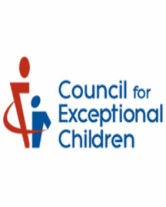Allow Students to Become Active Generators of Their Own Knowledge
There are two major orientations in pedagogy: the transmission model and the interactive/experiential model. These differ in the extent to which the teacher retains exclusive control over classroom interaction as opposed to sharing some of this control with students. The basic premise of the transmission model is that the teacher's task is to impart knowledge or skills to students who do not yet have these skills. This implies that the teacher initiates and controls the interaction, constantly orienting it toward the achievement of instructional objectives.
A central tenet of the interactive/experiential model is that talking and writing are means to learning. Its major characteristics, as compared to a transmission model, are as follows:
- Genuine dialogue between student and teacher in both oral and written modalities.
- Guidance and facilitation rather than control of student learning by the teacher.
- Encouragement of student-student talk in a collaborative learning context.
- Encouragement of meaningful language use by students rather than correctness of surface forms.
- Conscious integration of language use and development with all curricular content rather than teaching language and other content as isolated subjects.
- A focus on developing higher level cognitive skills rather than factual recall.
- Task presentation that generates intrinsic rather than extrinsic motivation.
- Student involvement in curriculum planning, teaching students to understand learning styles.
In short, pedagogical approaches that empower students encourage them to assume greater control over setting their own learning goals and collaborate actively with each other in achieving these goals. The instruction is automatically culture-fair in that all students are actively involved in expressing, sharing, and amplifying their experiences within the classroom. Recent research on effective teaching strategies for bilingual students with disabilities supports the adoption of interactive/experiential models of pedagogy.
Use an Advocacy Orientation in the Assessment Process
Recent studies suggest that despite the appearance of change brought about by legislation such as Public Law 94-142, the Education for All Handicapped Children Act of 1975, psychologists continue to test children until they find the disability that could be invoked to explain the student's apparent academic difficulties. What is required to reverse the so-called legitimizing function of assessment can be termed an advocacy orientation. To challenge the labeling of students from minority groups as disabled, assessment must focus on (a) the extent to which children's language and culture are incorporated into the school program, (b) the extent to which educators collaborate with parents in a shared enterprise, and (c) the extent to which children are encouraged to use both their first and second languages actively in the classroom to amplify their experiences in interaction with other children and adults. It is essential that assessment go beyond psychoeducational considerations and take into account the child's entire learning environment.
In summary, an advocacy approach to assessment of children from minority groups involves identifying the pathology that exists in the power relations between dominant and dominated groups in society, in the reflection of these power relations in the interactions of schools and communities, and in the mental and cultural disabling of students from minority groups that takes place in classrooms.
The major goal of the intervention model discussed here is to prevent academic casualties among students from minority groups. The principles of empowerment pedagogy are equally applicable to all programs for students from minority groups, regardless of whether they are designated bilingual education, bilingual special education, or some other form of program. In fact, students from minority groups who are experiencing learning difficulties and have been referred for special education have a particular need for empowerment pedagogy and can benefit considerably from such approaches.














